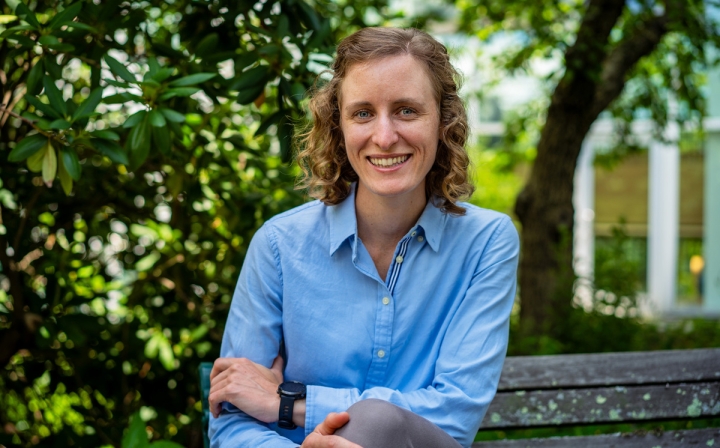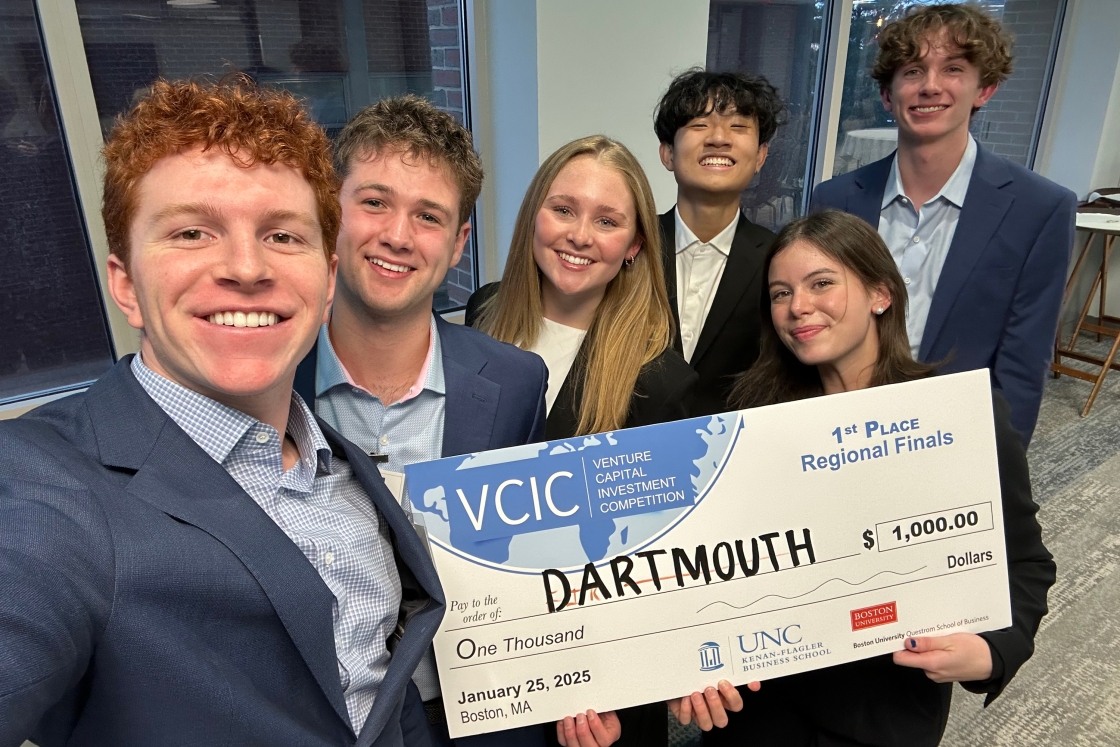Kudos is an occasional column that recognizes Dartmouth faculty, students, and staff who have received awards or other honors. Did you or a colleague recently receive an award or honor? Please tell us about it: dartmouth.news@dartmouth.edu.
Lilian Mehrel ’09 has won the 2024 AT&T Presents: Untold Stories award to help develop her debut feature film, Honeyjoon. The writer and filmmaker will receive $1 million and mentoring to produce the comedy about a Kurdish-Persian mother and her daughter who travel to the coast of Portugal after a recent loss.
A partnership between AT&T and the Tribeca Film Festival, the annual pitch competition and mentorship program helps emerging and historically underrepresented filmmakers produce their films, which premiere at the festival. Honeyjoon will screen at Tribeca in 2025.
Mehrel was a Senior Fellow at Dartmouth and wrote an illustrated biographical book for her fellowship. She holds an MFA from New York University Tisch School of the Arts.
Ta Yuan Chang, professor of biochemistry and cell biology, has been elected to Academia Sinica in Taiwan. The academic institution elects new members biannually in the fields of mathematics and physical sciences, engineering sciences, life sciences, and humanities and social sciences. Membership is considered the highest honor for a scientist with Republic of China citizenship.
The Chang Laboratory uses basic and translational research—employing biochemistry, cell and molecular biology, nanotechnology, and medicinal chemistry, as investigative tools—to better understand cholesterol homeostasis, a fundamental process that plays an important role in health and in diseases.
Vidushi Sharma ’27 attended the NATO Public Forum in Washington, D.C., last month, as part of a summer internship with U.S. Sen. Jeanne Shaheen, D-N.H., funded by the Nelson A. Rockefeller Center for Public Policy Studies. In an illustrated post, Sharma reflects on her experience at the event, which is held in conjunction with the NATO Summit.
Kali Smolen, an MD-PhD student at the Geisel School of Medicine, has been named a Sadler Fellow. Smolen is one of four emerging clinical health leaders to be awarded the 2024 Blair and Georgia Sadler Fellowship at Health Care Without Harm. The international organization works to help the health care sector mitigate its environmental impact.

The fellows receive a scholarship to attend CleanMed, a national conference for leaders in health care sustainability, and a $1,000 grant to complete a project that aims to demonstrate scalable solutions. Smolen’s project will identify ways to reduce the climate impact of colonoscopies, which rely heavily on single-use devices.
Leslie Butler, professor of history and department vice chair, has won the Society of U.S. Intellectual Historians’ annual book award for Consistent Democracy: The ‘Woman Question’ and Self-Government in Nineteenth-Century America.
Consistent Democracy was selected “from a deep pool of many excellent books” because of its compelling and persuasive arguments, creative use of a variety of primary sources, and timely contribution to current debates about the meaning of democracy in principle and in practice, according to a statement from the prize committee.
Charles Wheelan ’88, adjunct professor of business administration and faculty director at Tuck’s Center for Business, Government, and Society, has contributed a chapter to a book about centrist politics around the world. Other contributors to The Centre Must Hold: Why Centrism is the Answer to Extremism and Polarisation include former U.K. Prime Minister Tony Blair and former New York City Mayor Michael Bloomberg).
In his chapter, “Centrism and Building a Better Political System,” Wheelan makes the case that good governance requires rewarding politicians who are as representative of the electorate as possible, yet the current U.S. system is structured to do the opposite.
“How can we return more power to the exhausted majority? By making process changes that diminish the influence of loud but non-representative political groups,” writes Wheelan, who points to Alaska’s 2020 electoral reform as a possible path forward.
The state replaced party primaries with a single open primary; the top four finishers advance to the general election—irrespective of party—with the winner chosen by ranked-choice voting.

